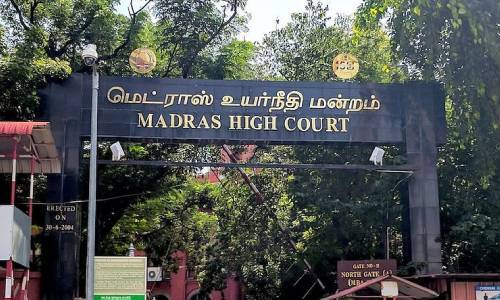
In a case titled A Pitchaiah v. The Managing Director and Ors, the Madras High Court held that disputed facts cannot be adjudicated in writ proceedings and that all alternative remedies must be exhausted before invoking the writ jurisdiction of the High Court.
In the instant case, the petitioner was a retired workman. Hence, he was governed under service conditions and after retirement under the pension scheme and therefore should approach the labour court for appropriate relief to redress his grievances in the manner known to law.
The Court also held that sometimes the High Court has limited powers to delve into certain issues which gives rise to a multiplicity of proceedings, and the litigant suffers because of that.
The judgment further reads:-
"The justice delivery system should thrive hard to ensure that the aggrieved persons get speedy justice and their genuine grievances are redressed in accordance with law. Contrarily, if they were driven to Court repeatedly and finally their grievances are not addressed or redressed then the faith in the justice delivery system is in peril and therefore, the Courts are expected to be cautious in dealing with the multiplicity of proceedings and the possibility of creating multiplicity of proceedings and to ensure that the issues are decided on merits at the first instance itself. Once the issues are decided and the rights of the parties are crystallized, then all appropriate reliefs can be granted even in a writ petition filed for a direction to consider the representation."
Going further, the Court said often the issue isn’t about the maintainability of a writ petition u/a 226 but rather a question of entertain ability. That is to say, all writ petitions are maintainable u/a 226 but their entertain ability is to be decided with respect to the rights of the parties or its infringement.
Explaining the scope of Article 226, it opined that “The power of judicial review under Article 226 of the Constitution of India is to ensure the processes through which the decision is taken by the competent authorities in consonance with the statues and rules in force, but in a decision itself. This being the scope under the Constitution, the High Court need not venture into an adjudication of the disputed facts between the parties, at all circumstances.”
Therefore it is settled that, exhausting the alternate remedy is the rule, entertaining a writ petition is an exception. The aggrieved person has to exhaust the alternate remedy contemplated under the Act, Rules or otherwise. Only in exceptional circumstances, where there is a gross injustice or if any damage which cannot be rectified, then alone the high Court would dispense with the alternate remedy and entertain a writ petition.

